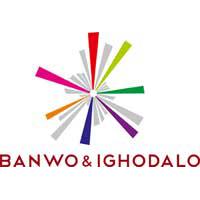
Partner | Clifford Chance Europe






Delphine Siino Courtin
Partner | Clifford Chance Europe
Number of years practice: 18
Principal practice areas: Projects and finance
Languages spoken: French, English and Italian
What is the geographical focus of your practice in Africa?
My predominant focus is on Francophone Africa (North, West and Central). I have worked on deals across a wide range of jurisdictions in that region, within Cameroon, Ivory Coast, Mali, Benin, Morocco, Senegal, Tunisia, Algeria, Congo, DR Congo, Gabon and Equatorial Guinea.
I have also worked on transactions in Anglophone Africa, East Africa and Southern Africa.
Please describe the most important matters you have worked on in the African market in the last two years, including your role and the significance of the matter (if any) to the development of business and law.
I am specialised in project finance and project development across a variety of sectors, including the energy, oil and gas, and infrastructure sectors. My recent experience in Africa in the last two years includes advising 15 lenders, 11 development finance institutions and four local commercial banks on the financing of a 420 MW hydropower project on the Sanaga River near the Nachtigal Falls, for a total project cost of €1.2bn. Nachtigal is the largest hydro IPP planned in Africa and, when operational, will contribute 30% of Cameroon’s total electricity generation capacity. I am the lead partner on this transaction advising the lenders and am proud that this was a landmark financing that drew upon the strength of our market leading African practice and of over 15 years of experience in advising on power projects in Cameroon for its success. This is a project that will provide great potential benefits to the Cameroonian power sector.
In Senegal, I have been advising lenders as the lead partner on the financing of the 52.9 MW combined cycle power plant located at Cap des Biches, as well as advising Africa50 in connection with the development and financing of the Malicounda 120 MW Dual Fuel Plant in the country. I am also the lead partner on this transaction advising Africa50 as co-developer.
Also, I have advised more lenders on negotiating, drafting and generally advising on documents in relation to the financing of the Segou Solar IPP Project in Mali, where again I am the lead partner.
In Benin, I’ve been advising on the financing of a 136 MW dual fuel combined cycle plant in Maria Gleta, as well as advising a developer on a WAPP Programme involving several jurisdictions including Benin, Mali and Burkina Faso.
I have also worked on the financing of the Ghana Airports Company (GACL) capital investment programme, comprising the construction of a new terminal at Kotoka International Airport in Accra, and rehabilitation of other airports managed by GACL.
Finally, I have worked as the lead partner on transactions surrounding the Metoro Photovoltaic Power Plant in Mozambique, as well as advising the lenders on the financing of the CIPREL Power plant in Ivory Coast.
What differentiates your practice from that of other private practice lawyers?
Our Africa practice stands out from that of other firms by its breadth across types of clients, types of practice, types of sectors and geographical reach throughout the continent. We have been active for more than 40 years and have advised on numerous market-firsts and innovative transactions.
On a personal level, I have been focusing on African projects for the past 17 years and in several jurisdictions such as Cameroon and Senegal, I have worked on almost all of the power projects for the past 15 years.
Why has Africa been a particularly strong focus for you?
I came across Africa by chance approximately 17 years ago when I joined the Paris projects group of Herbert Smith in 2002. I discovered the breadth of opportunities in Africa in all sectors and I am particularly passionate about the differences that we make when doing some of the projects in those countries. By way of example, I was on the evening TV headline news in Ivory Coast when we closed the CIPREL financing in 2013, and again in November 2018 in Cameroon when we closed the Nachtigal Financing.
Some of these projects cover a significant part of the country’s electricity needs and I am proud to be participating to the development of infrastructure in these countries which is an absolute need for its future economic development.
What changes have you seen in the appetite for Africa-based ventures and investments over the last five years?
Firstly, a lot of “old players” in the market such as EDF, Engie, French banks such as Société Générale and BNP Paribas have started investing again in Africa in the last five years. Some of them have joined with African partners and opened new offices. Many big quoted groups have “Africa” as one of their key target priorities.
In addition, with the rise of Moroccan banks and insurance companies, some of the big players in sub-Saharan Africa include corporations from North Africa and in particular Morocco.
In terms of types of investments, I have also seen a move to develop “platform” transactions [involving] larger scale and mutualised risks.
Are there any aspects of the African legal market that you would like to see change?
Yes, just to name a few, better legal representation of governments and public entities. A lot of time is spent “educating” those parties and the ASLF bursaries of the African Development Bank is still too focused on low budgets (and therefore poor quality legal advice).
I would also like to see more regional harmonised regulations. OHADA law is a great example of success. It does not cover all topics but having a harmonised set out laws simplifies regional cross-border transactions.
What megatrends do you think will shape the African market over the coming five years? How (if at all) will these trends affect your practice?
Positive trends are the current population surge and its effects; urbanisation and “smart cities”, opportunities for growth in the private sector with businesses seeing rising demand for goods and services, a young, dynamic labour market and a clear focus on innovation and new technologies. Other positive trends include the development of Africa Intra-trade and that of rural electrification using solar panels for households financed by payments with mobile phones.
More negatively, the infrastructure gap and sovereign debt, where some African states have almost reached their limits now. Foreign currency shortfalls in many jurisdictions (such as Mozambique as well the CFA Franc zone) as well as the length of development of projects increasing. For big projects, their development and implementation phases continue to be too long.